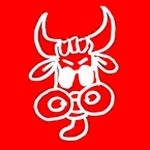In its definition of sideburns, Merriam-Webster's Collegiate Dictionary, Eleventh Edition (2003) refers to the spelling as an "anagram of burnsides." But since derubniss, sisburden, and ubersnids are likewise anagrams of burnsides, the term anagram doesn't get at the most interesting aspect of sideburns, which is its transposition or inversion of complete syllables from the original word. (The Eleventh Collegiate dates burnsides to 1875 and sideburns to 1887.)
Similarly, tagrag goes back at least as far as 1599, when Shakespeare has Casca say (in act 1, scene 2 of Julius Caesar) "If the tag-rag people did not clap him and hiss him, according as he pleased and displeased them, as they use to do the players in the theatre, I am no true man"; ragtag, meanwhile, has a first-occurrence date of 1820, according to the Eleventh Collegiate. And finally the Eleventh Collegiate dates woodpecker to circa 1530 and peckerwood to 1904.
The closest descriptive terms for sideburns, ragtag, and peckerwood that I've been able to find are metaplasm ("moving from their natural place letters or syllables of a word") and metathesis ("transposition of letters out of normal order in a word")âboth definitions quoted from Richard A. Lanham, A Handlist of Rhetorical Terms (1968). But is there a term that specifically refers to whole-syllable transpositions and not to partial or augmented ones (like the anagrams/metaplasms bass-ackwards, erewhon, and spandex)?
And secondly, are there other examples of English words that fall into this class? I'm looking for words that reverse syllables while (at least at first) retaining the original meaning of the word, not words (like passover and overpass) that happen to have mirrored syllables.
